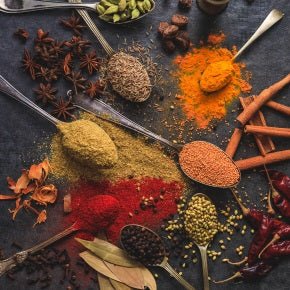This week’s Nutrition News covers recent studies that appear to uncover new health benefits for well known nutrients in areas quite different from what they are known for. Could probiotics support the body beyond gut health and could turmeric offer benefits beyond its properties as an anti-inflammatory? Find out in this week’s Nutrition News article.
Study suggests Lactobacillus Plantarum supports recovery after half marathon
Probiotics such as Lactobacillus Plantarum are known to support gut health but a recent study has shown that their applications could stretch as far as aiding runners in half marathon recovery.
The double-blind, randomised, placebo controlled, counterbalanced crossover study from researchers in Taiwan, as reported by NutraIngredients, was conducted to explore whether the probiotic strain could lessen the muscle damage, renal damage and oxidative stress caused by a half marathon. The study involved eight recreational runners, split by gender and aged between 23 and 30 years old. The participants either took two capsules of the probiotic each morning and evening before meals for four weeks or they took a placebo.
Following the four week trial, the researchers found that, although there was no difference between the trial group and the control group in half marathon performance, a clear difference was seen in recovery. The trial group showed lower muscle damage indices, higher superoxide dismutase and recovered blood urea nitrogen after 24 hours.
The researchers admit the sample size of eight participants is a significant limitation of the study but argue that the large number of sampling time points illustrate the noteworthiness of the findings and suggest that further research is warranted.
Turmeric could improve inflammatory markers and mental health
Curcuma Longa, or turmeric as it is known, has been regarded as a powerful anti-inflammatory for some time, however, the extent of these anti-inflammatory properties is still being researched. A recent study published by Nutrition Journal ran a randomised, double blind, placebo controlled trial over a 12 week period to explore the effects of turmeric on elderly and middle aged, overweight participants.
The study monitored the effects of turmeric on chronic inflammation and associated health outcomes by measuring blood levels of inflammatory markers and assessing general health with two questionnaires, one that asked questions relating to general health and the other assessed mood.
What the study found was very interesting; compared with the placebo group, the test group reported significantly lower BMI, body weight, and serum levels of C-reactive protein (CRP) and component 3 (C3) convertase, which are pathways activated by inflammation. Additionally, the test subjects’ scores for mental health as well as anger and hostility were also significantly improved.
The research suggests that turmeric could have very real applications in supporting both physical and mental health and further studies are needed to assess its properties further.
Childhood obesity on the rise
During the course of the pandemic, children’s relationship with food and good nutrition has taken a downward trend according to this BBC article. The article cites data from NHS Digital, which shows that 10% of children were classed as obese by primary school age in the year 2019-20, but this figure rose to 14% in year 2020-21; the biggest jump seen in recent years.
The story was bleaker still in the last year of primary school where rates of obesity rose from 21% to 25% between the years of 2019-20 and 2020-21. It’s thought that poverty and mental health problems, combined with the lockdowns imposed by the pandemic, have each played their part in contributing to the rise in childhood obesity, with rates twice as high in the country’s poorest areas when compared to the more wealthy.
While the findings have been closely linked to the pressures of the pandemic, Dr Max Davie, of Paediatrics and Child Health, has warned that we mustn’t see this rise as a ‘aberration’ as the mental health implications could take a significant amount of time to address.
Share your thoughts
Agree with the findings in this week’s Nutrition News? Share your thoughts with us on Facebook and Twitter.
 Alison is the Founder of Metabolics who writes about Metabolics updates, events and natural healthcare. Her experience and passion for natural supplements and healthcare comes from her years of experience as a practising osteopath, having founded Metabolics in her search for high quality, natural products in her own work. Alison has been a qualified and practising Osteopath since 1981 and regularly gives seminars on a range of healthcare subjects to the wider practitioner community helping share her knowledge and experience.
Alison is the Founder of Metabolics who writes about Metabolics updates, events and natural healthcare. Her experience and passion for natural supplements and healthcare comes from her years of experience as a practising osteopath, having founded Metabolics in her search for high quality, natural products in her own work. Alison has been a qualified and practising Osteopath since 1981 and regularly gives seminars on a range of healthcare subjects to the wider practitioner community helping share her knowledge and experience.





